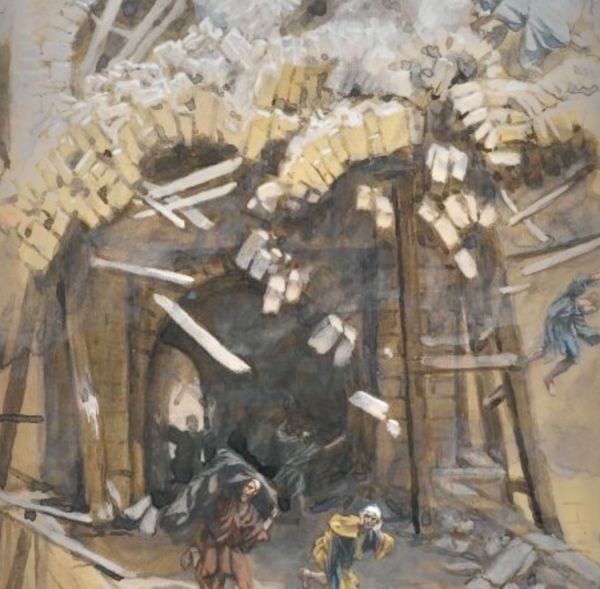In the first pericope, today's Gospel highlights the urgency of the profound conversion of every man, without pointing the finger at the guilt of others, but looking at one's own.
In Francis, it is a case of speaking of permanent conversion, always sought - and which lasted as long as he lived.
He considered himself, in fact, the most sinful of men, reached by Grace.
Consulting the Sources, we realise the calibre of the Poverello also in this regard.
We read of a friar who, rapt in ecstasy, saw among the many seats in heaven one of particular beauty.
Asking whose it was, a voice answered him that it was reserved for the humble Francis.
The story continues:
"Having returned to himself, the friar sees Francis returning from prayer.
He immediately prostrates himself before him, with his arms in the form of a cross, and addresses himself not as one who lives on earth, but almost as one who already reigns in heaven:
"Pray for me the Son of God, Father, that he may not take my sins into account."
The man of God holds out his hand and lifts him up, confident that in prayer he has received a vision.
Finally, as they leave the place, the friar asks Francis:
"Father, what do you think of yourself?".
And he replied:
"It seems to me that I am the greatest sinner, because if God had used such mercy on some wicked man, he would be ten times better than me".
At these words, immediately the Spirit said inwardly to the friar:
"Know that your vision was true from this: for this most humble man will be raised by his humility to that throne which was lost through pride" (FF 707).
And Francis himself, speaking to his brethren about the efficacy of prayer, told them:
"Indeed [there are] those who delude themselves that they have edified or converted to penance by their discourses; it is the Lord who edifies and converts them through the prayers of the holy brethren, even if the latter ignore him [...].
These brethren are my knights of the round table, who hide in secluded and uninhabited places, to engage more fervently in prayer and meditation, weeping over their own sins and those of others [...]" (FF 1624).
The Minim warned against feeling better than others and against the glory of inducing conversion with one's own speeches, inflated with complacent wisdom.
No one is perfect! Only the Spirit of God, who transforms hearts of stone into hearts of flesh, is better.
Jesus calls for conversion: "unless you are converted, you will all perish in the same way" (Lk 13:5) is a recurring expression.
Francis, humble of heart and simple, offers an episode in this regard that calls for reflection.
"He said that preachers, who often sell their ministry for a penny of vainglory, are to be pitied. And he sometimes tried to cure their swelling with this remedy:
"Why do you glory in the conversion of men, when my simple brethren have converted them with their prayers?"
And indeed he commented thus on the passage that says: "Even the barren woman has borne many sons":
"The barren one is my poor brother, who has no business begetting sons in the Church. But in the judgement he will have given birth to many, because on that day the judge will ascribe to his glory those whom he now converts with his personal prayers'" (FF 749).
And again:
"There are many brethren who [...] proclaiming the Gospel to some people and to the people, on seeing or hearing that some have been edified by it or converted to penance, become proud and mount in pride for results obtained by the efforts of others.
The humble and daily conversion of the Minim and his brothers has, over time, revolutionised all prideful thinking, thanks to the Word of Christ.
«Do you think that these Galileans were more sinful than all Galileans, for having suffered these things? No, I tell you, but unless you are converted, you will all perish just the same» (Lk 13:2-3)
3rd Sunday in Lent (year C) (Lk 13:1-9)












